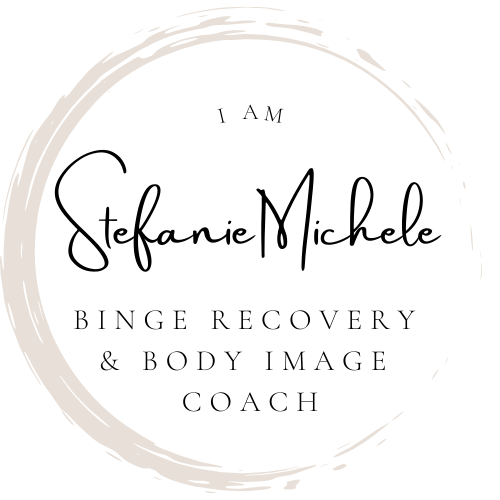Q: Is it bad to watch TV when I eat?
Q: What's your opinion on eating while watching TV during recovery?
The first thing that happens to me when I hear this question is a stirring of rebellion. I know the answer -- don't watch TV. Be mindful about your food. Sit down in a quiet place and pay attention to your bites without distractions.
The advice is not wrong. It has merit.
But it feels like a should.
People who binge eat don't like shoulds.
For this reason alone, I find it difficult to dispense the advice that you might expect me to give. Does eating in front of the TV disconnect you from your fullness cues? It absolutely can. Does eating in front of the TV promote eating on autopilot and using food to numb? It absolutely can. Does that mean you shouldn't do it?
It depends.
If watching TV while eating is something that you really enjoy, and the thought of stopping incites your inner rebel, it might be better to continue doing it for a little while. There are ways to be more mindful while eating with distractions, like periodically checking in with your fullness signals or plating the food beforehand so it feels intentional and "real."
Eating with TV can be a way to relax, and the experience of enjoying food while you suspend reality for 30-60 minutes might be a form of self-care sometimes.
On the other hand, distracted eating can be a way to give yourself permission to binge without formally giving yourself permission to binge. If you end up eating all the things in front of the TV—you looked down and the bag was suddenly empty—consider that you actually wanted to eat the whole bag but needed a reason to zone-out while you did so, to avoid the nagging inner voice that might have told you "tsk tsk." If we do something while we're not looking, it feels like it didn't really happen, or at least we were able to do it without killing the moment with our judgment.
Underneath all of that is the larger question of why we are looking to numb out in the first place. If you find yourself eating to discomfort in front of the TV more often than not, there is likely something emotional happening in the undercurrents of life that lead to feeling a need to numb, distract, or escape. Food is a soothing, calming, reward-center-activating tool that combats the feelings of purposelessness, loneliness, anger, sadness, or emptiness that we might be dealing with under the surface. If those emotions feel threatening, distracted eating might be a coping mechanism that both tunes out the emotion and allows you to enjoy the experience without guilt or threat of stopping. (Until, of course, it's over and the regret moves in -- but at least that's something we feel we have control over.)
But, without knowing the background of the person who asked this question, it might be the case that emotional or binge eating is not taking place as you watch TV. If that is the case for you, read on.
There is definitely a case to be made for eating without distractions, because it helps you stay focused on the food and how your body is responding to the food in real time. Dieting disconnects us from our body's natural cues (and even how food tastes, feels, and smells) so the practice of reacquainting ourselves with the nuances of the eating experience is helpful to developing a positive relationship with food and fullness. There is also a psychological benefit to eating without distractions in that your mind is fully registering that you are intentionally eating, and that you deserve the meal in front of you. Being present with your food is foundational to mindfulness with food, which only supports a stronger connection to food and body.
That said, I don't think it's a make-or-break aspect of recovery. I was able to stop binge eating and respect my fullness even while participating in distracted eating (including watching TV as I ate). To this day, I still enjoy having a snack with a movie, and I eat my fair share of meals with my phone or laptop. Meals become rushed just like everything else in life, and I actually sometimes enjoy the practice of eating while scrolling. It’s relaxing to me sometimes. However, I have also become really good at periodically checking in with myself even as I eat distractedly. I remember to savor at least a few bites, and take in the meal as a whole experience, distractions included.
I think it’s important to ask yourself if distracted eating is becoming a pattern that feels out of your control. If the experience feels mindless, it’s probably worth it to become more intentional and minimize distractions for a while. Usually, chronic mindless eating means that something else is going on in your life that needs attending, so it can be used as a signal.
Bottom line: If you are recruiting pleasure from multi-tasking your food experience and still feel able to eat in a way that is comfortable and not entirely mindless, then I don't think it's a bad thing. If, however, you find that distractions are taking you farther away from eating as a pleasurable experience, it might be worth a try to experiment with eating in a distraction free environment.

